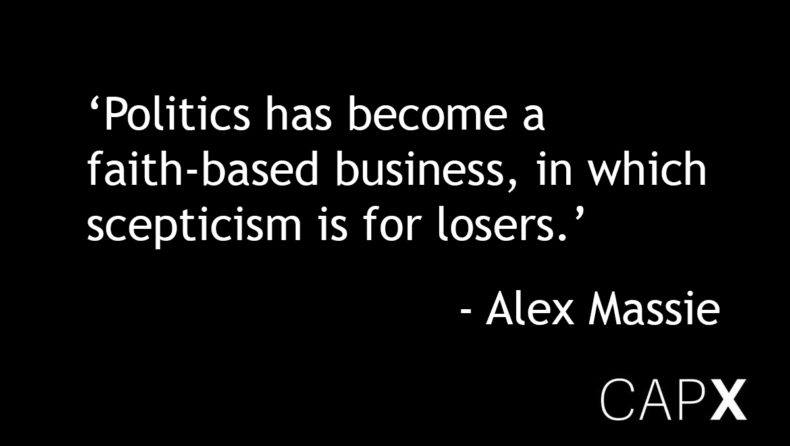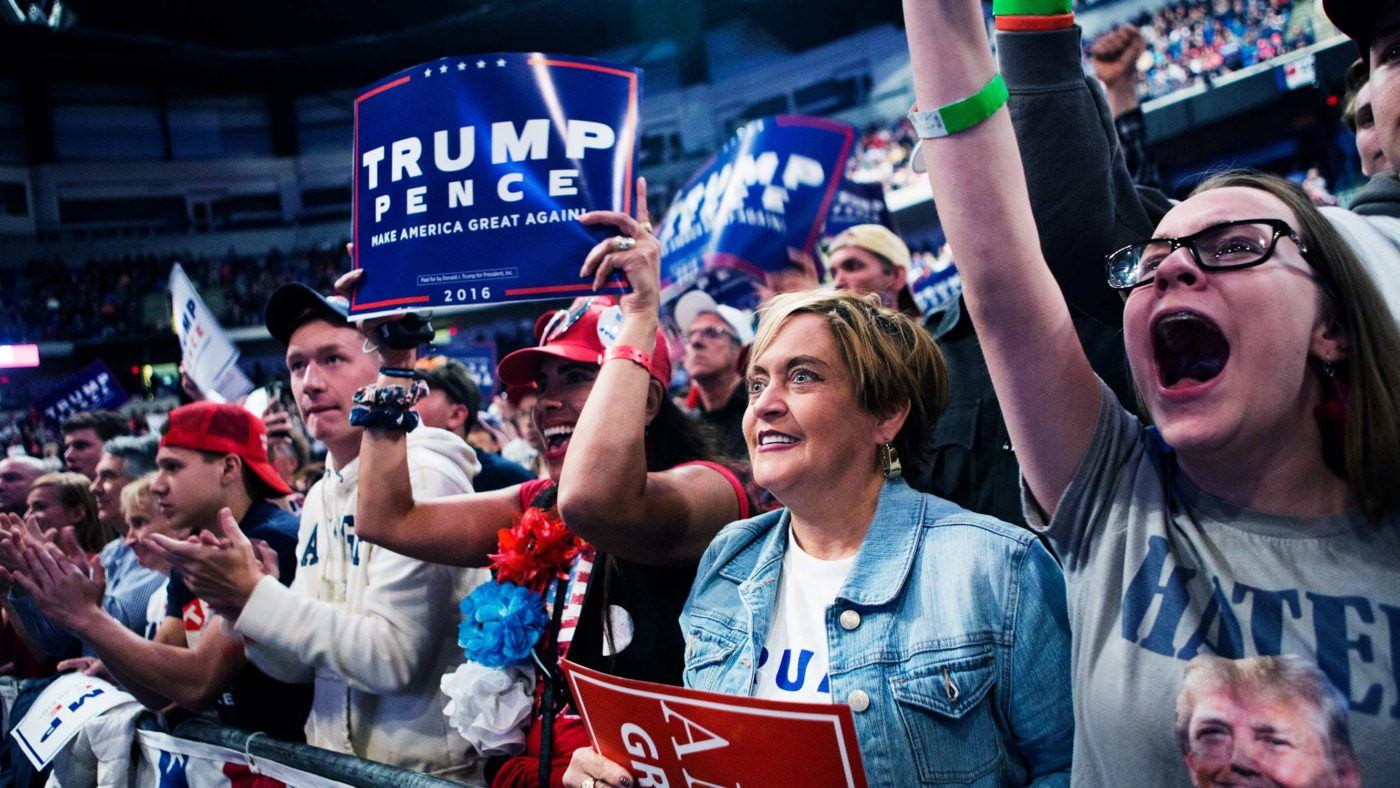The enthusiasm with which many Conservatives campaigned for Brexit was dispiriting. Not because I thought their views wrong – though they may yet prove ill-advised – but because I couldn’t empathise with, or even recognise, the certainty with which they made their case.
They talked about restoring British “independence” and about how we would, once again, be a “free country”. Everything from the City’s steel and glass canyons to the bees in the meadows of old England would thrive after Brexit.
There would be no downside, no sense that there could be disadvantages as well as opportunities. And, thus, of course, no allowance that a cost-benefit analysis could tip in either direction.
Making the best of an imperfect world has long been the essence of Toryism. Yet it was trumped by the magnificent simplicity of a new and liberating beginning.
Putting your faith in the Confidence Fairy is all very well and good, But prudence surely demands a fall-back position and a back-up plan. Prudence, in fact, would look askance at the idea of immediate and transformational political change. Yet in this instance, radicalism triumphed over Toryism.

It’s far from the only example. During the George W Bush years, it became commonplace, at least amongst American conservative backers of the Iraq War, to observe that the US’s problems in Mesopotamia reflected a failure of willpower.
If, this criticism ran, the US had the confidence to only properly commit itself, it could achieve its goals in Iraq. Failure was ascribed to a lack of willpower and confidence, not to the underlying complexities of a situation the United States struggled to understand, far less resolve. Some lessons from Vietnam were left unlearned.
Politics is not always, in other words, a game of willpower. Granted, getting anything done requires single-minded focus and attention to detail. But mere willpower, no matter how heroic, is rarely enough.
As with Iraq, so now with Brexit: if we believe in ourselves, we will make a success of it. It would be nice to think this true. But regrettably, there is little evidence that mere self-belief and injections of bulldog confidence will be enough to actually make a success of it. That needn’t mean disaster – merely that predictions of a new Britannic age ought to be tempered with as much salt as you can lay your hands upon.
Like everything else, the expression of heroic confidence exists on a spectrum. And the Brexit phenomenon is a mere piker compared to what’s happening on the other side of the Atlantic.
Donald Trump was elected on a promise to “Make America Great Again”. Like so much else Trump says, his signature promise withstands little scrutiny. When, actually, was America last great? And, actually, what does “great” even mean?
If there is a constant thread running through Trump’s on-off engagement with political reality, it is his perennial observation that America is being taken for a ride. All American presidents, except Trump, are weak. None have the clarity of vision, far less the necessary muscular confidence, to make America the country it once was and could again be. Ronald Reagan? Weak! George HW Bush? Weak! As for Messrs Clinton, Bush Jr, and Obama – well, there’s no need to labour the point.
Dare one suggest life might be more complicated than this? The White House is, as Teddy Roosevelt put it, a bully pulpit – that is, a very fine one. But it is not one from which you can bully your way to success. The American system of government sharply – sensibly, we may now think – curtails a President’s power.
Trump may think differently. He may think that if he musters sufficient confidence he will prevail. Indeed, he appears to have absorbed all too well the lessons offered by his favourite pastor, Dr Norman Vincent Peale, in his 1952 book “The Power of Positive Thinking”, the first rule of which is “formulate and staple indelibly on your mind a mental picture of yourself as succeeding”. Failure, you see, is just a choice.
But tactics which may work in real estate do not necessarily work in the more complicated world of politics. Not everything is binary – and politics is less binary than most things, being a game of trade-offs in which advancing in one area invariably imposes a cost in another.
Trump’s ascendancy merges three dangerous factors that, when applied to business, often lead companies astray. These are, first, that wisdom is concentrated in exceptional individuals who should be granted extraordinary power. Second, that risk is good and the bigger the risk the greater the pay-off. And, third, the delusion that confidence is enough.
Combined, these attributes ensure that every Gordian Knot can be solved by the same swift strike of a single sword. Worse than that, every problem is assumed to be a Gordian Knot – and only those without the necessary vision and boldness fail to appreciate this.
Innovation! Risk! Confidence! These are the watchwords for Trump and, indeed, for Brexit too. But, as Dr Tomas Chamorro-Premuzic, professor of business psychology at University College London, has observed, “most great innovations are not that risky; most risky decisions are not innovative”. We greatly overestimate the advantages of rapid change – and, just as importantly, our ability to be the agents of that change.
“We stand for measures that, on balance, seem more likely than not to allow for – or even, if we are particularly lucky, foster – incremental improvement” is not a slogan that has won many elections. Nevertheless, it is how, except in the most extreme and exceptional circumstances, government is supposed to work.
Trump is an extreme example, but there is a sense in which his ascendancy is simply the more vulgar manifestation of an older strain of political thought.
In the late 1990s neoconservatives (this was before the term had been so thoroughly bastardised) argued that the United States had grown fat and lazy. It lacked vigour. There was no great cause for which it was fighting, and a decade of relative peace and undoubted prosperity showed dangerous signs of sapping American vitality.
What was needed was a new political programme designed to advance the concept of national greatness. Initially, John McCain was the vehicle for this philosophy. McCain, you will remember, promised in the 2000 Republican primaries to cleanse a muck-ridden Washington DC and restore a moral purpose to American government – and, by doing so, usher in a new era of American greatness.
McCain lost, of course, and Bush prevailed. And then came 9/11 and the call for a renewed sense of national purpose was recalibrated to take account of what must follow the Twin Towers’ fall. Out of the rubble, the eagle would soar. It was a terrible time, but also one filled with opportunity. There was something visceral about this; something liberating too.
We know what happened next – even if, sometimes, we seem to have forgotten it. History has fewer transformational moments than we think, and those there are often end up being subject to the laws of unintended consequence too.
There is, in other words, a virtue in political modesty. Yet as we lurch between promises of certain boom and equally certain bust, there are few standard-bearers for modesty these days. Politics has become a faith-based business, in which scepticism is for losers.
But while it’s good to hope that a cherished ideological project might work, we should never forget to ask one simple question: what if it doesn’t?


